Checking in on Gaza: Jewish, Palestinian leaders speak out
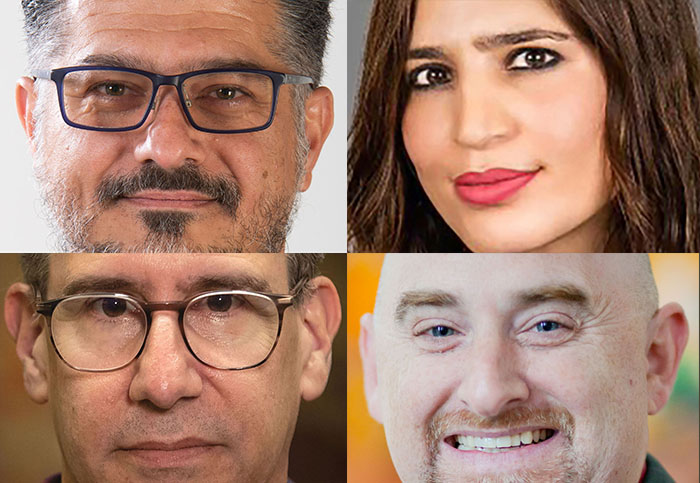
by Mick Rhodes | editor@claremont-courier.com
On November 10, 2023 the Courier published two stories about the then month-old conflict, “Local Jewish leaders speak out on war in Gaza,” featuring executive director of the Jewish Federation of the Greater San Gabriel and Pomona ValleysJason Moss, and Rabbi Jonathan Kupetz, from Pomona’s Temple Beth Israel.
Save a brief respite from a temporary ceasefire November 24-30, the war has since then escalated grotesquely. The latest numbers indicate 25,490 Palestinians have been killed — including an estimated 12,000 children — by Israeli attacks in Gaza since the war began. On January 14 the IDF reported this number includes more than 9,000 Hamas operatives and members of other terror groups it has killed since the war began. Estimates put the number of all Gazans wounded in the conflict at 63,000. More than 90% of Gaza’s 2.3 million inhabitants have been displaced, and perhaps most ominously, some 570,000 face catastrophic hunger as winter settles in, according to a January 23 report from the United Nations.
Hamas’ horrific October 7 attack on Israel was at the time reported to have killed some 1,400 Israeli civilians and soldiers. That number has since been revised downward to 1,139. At press time Israel had lost 221 soldiers in Gaza.
During November’s temporary ceasefire, Hamas released about 100 of the approximately 240 hostages it took on October 7, leaving roughly 130 still in captivity.
Our November 10 story focused solely on reaction from local Jewish leaders Moss and Kupetz. Today’s story is expanded to include voices from Southern California’s Palestinian community, activist and organizer Mirvette Judeh, and Executive Director of the Council on American-Islamic Relations, California, Hussam Ayloush.
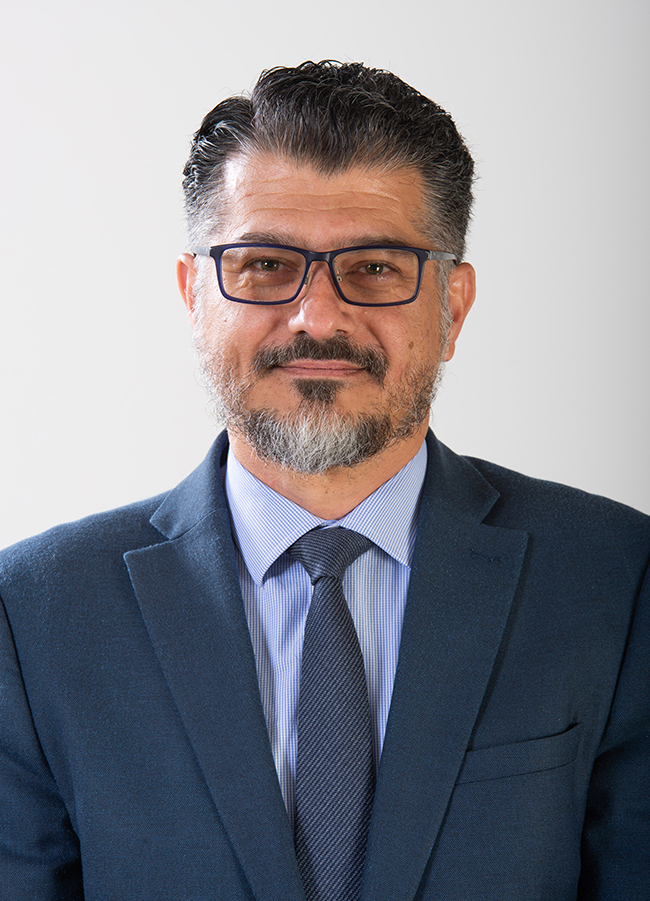
Hussam Ayloush. Photo/courtesy of Hussam Ayloush
Hussam Ayloush, 54, is the executive director of the Council on American-Islamic Relations, California. He spoke to the Courier by phone on January 15. Please note the death toll figures cited in this story are based on information available at that time.
- COURIER: The U.N.’s International Court of Justice recently held hearings on a casebrought by South Africa accusing Israel of genocide with respect to the current conflict with Hamas and seeking an emergency suspension of its military campaign. What is your take on this assertion?
AYLOUSH: Certainly, the petitioning by South Africa is appreciated and needed at a time when the entire world, at least from a political perspective, seems to be silent in the face of our worst war atrocities in our modern time, at least for the 21stcentury, as many experts have said.
It is certainly valid, accurate, and needed, in the hope that maybe since the world had failed in its leadership, many have chosen to be silent, unfortunately some — including the U.S. and other western countries — have chosen to be accomplices, it’s refreshing to hear and to watch the second to last former apartheid state, South Africa, be the one leading the effort against the last apartheid state in the world today, and that is Israel, on the assertion of its genocide against the Palestinians.
Palestinians living in Gaza are witnessing a genocide. Before the genocide, Palestinians all over historic Palestine — in Israel, the West Bank, or in Gaza — continue to be subjected to an apartheid system, as documented by every single human rights organization in the world, including Israeli ones. This is not me asserting; this is not a political statement. This is a factual statement made by every single human rights organization in the world today.
- Since October 7, Israel’s death toll from this war stands at roughly 1,200. There have been roughly 23,000 Palestinians killed in the conflict over that same period. What are your thoughts on these vastly disproportionate numbers?
Every human life lost is a tragedy, especially when it is a woman, a child, a man, who have nothing to do with any conflict. Any innocent person — Jewish, Muslim, Christian, Palestinian, Israeli — is a tragedy that [should] never have happened. But the issue is not merely about numbers here. There is a context that is also missing in the discussion of this ongoing tragedy happening today in Gaza. And the context is not the fact that yes, it is disproportionate, but let me ask: would 1,000 Palestinians be proportionate when we know the majority of them are women and children, and innocent men? No. So for me, it is almost an irrelevant aspect. The fact that it is disproportionate, the fact that it is 10,000 Palestinian babies and children have been killed in just the last 100 days, yes, it is terrible. But the issue is, before we even talk about how proportionate or disproportionate the death is, we have to ask ourselves why do we even have to go through this every year or two? Why is this violence allowed to continue? Why is this occupation allowed to be justified, excused, and often funded by our [U.S.] tax money? Those are more important questions.
These are our missiles that are being dropped on schools, mosques, churches, U.N. shelters in Gaza. These are our F16s provided to Israel.
And the history of these war crimes did not begin on October 7, as some would like us to believe. Gaza was not some vacation resort where people enjoyed peace and human dignity. People of Gaza have been subjected to 17 years of one of the most brutal sieges in modern history, where not only movement in and out of Gaza was prevented, but even simple access to food, medicine, future, hope, was denied to the Palestinians by the Israeli occupation. And unless we address and talk openly, sincerely about this longest occupation that exists today in our world that the settler-colonial government of Israel continues to impose on the indigenous people of Palestine, and we try to end it, we will continue to be meeting every few months or every year to talk about the disproportionate targeting of Palestinians by the Israeli government.
Critics on both sides, including some from within Israel, have questioned the disproportionality of these figures. Many around the world — including some inside Israel — have called for a ceasefire. What are your thoughts on these calls for the cessation of hostilities?
At this point there’s no debate about the fact that innocent people are being indiscriminately targeted. Even [President] Biden, who continues to enable this genocide, has said it. Western leaders who support Israel have agreed. Israel has not done enough to prevent the targeting of civilians. I will even add and say Israeli leaders themselves left no room to guess when they called for the flattening of Gaza. When they said, these are not human, these are human animals, describing the Palestinians; when the President of Israel [Isaac] Herzog said there are no civilians in [Gaza]; Israeli officials said at this point, accuracy is not our goal. Maximum damage is our goal.
So now we know that Israel is intentionally, as part of its plan to ethnically cleanse Gaza … it has targeted schools, mosques, churches, power buildings, entire neighborhoods, to basically force the population of Gaza out of Gaza. And again, they haven’t denied that fact. [Israel is] going around, meeting with different countries, trying to convince them to take Palestinians out of Gaza into these countries.
So, what we’re witnessing today is a mass murder that is happening. So, we all have a choice — there is no third choice — either we support the mass murder … and there is no end goal to this.
The end goal of eliminating Hamas is, from a military perspective, useless in a sense. Because how do you eliminate a militia? Are we willing to eliminate 2.3 million Palestinians until we are sure there is no more Hamas? And if Hamas is eliminated today, what will come after Hamas?
So, there is no military solution to this conflict. There is only a political solution that begins with the end of the Israeli occupation.
At this point we all have only two choices: either we support the ongoing war crimes, or we say it has to stop through a ceasefire. And the ceasefire should not be the end goal. The ceasefire will be hopefully a permanent ceasefire that will allow for an immediate negotiation towards the ending of this apartheid system and the occupation of Palestinian land.
What are your personal views on how the war has been prosecuted thus far?
The war we’re witnessing today is only another chapter of a 76-year war on the Palestinian people. This is not something that started on October 7. Palestinians never chose this war. Palestinians didn’t move to Europe to target Zionists in Europe. It was European Zionists who invaded Palestinian land and dispossessed Palestinians from their land, ethnically cleansed them, murdered tens of thousands of their populations, subjected them to apartheid, a brutal siege, continuously — as we speak today, on October 6, October 5, October 4, the year before — continuously, illegally grabbing their land, stealing their land, to build illegal settlements for Jews only.
This is what we’re dealing with today; we’re dealing with a supremacist government that believes one group of people, based on their ethnicity or their national origin, have more rights than the indigenous people. So, they are continuously taking their land to build illegal settlements on these lands. The Palestinians are the victims of this war, and this war did not start on October 7.
Our assessment is that it’s just this time it is more brutal than usual, and this time it is being broadcast live by the people of Gaza themselves.
How have your constituents’ views on the war evolved, if at all, since October 7?
What we’ve witnessed, what we’ve learned today, is that racism has been a major factor in driving [the United States’] foreign policy. Let this be very clear: Israel’s vicious war on the Palestinian people could not have happened, could not have lasted, had it not been for the shameful, unconditional support it has received from the Biden administration, and previous administrations too. It could not. This is, by every standard, an American war on the Palestinian people. And it’s a continuation of an American acceptance for war against Middle Eastern, Arab, and Muslim people — whether it’s Afghanistan, whether it’s Iraq, whether it’s Somalia, whether it’s Yemen, whether it’s the Palestinians — and the list goes on and on.
And it’s only driven by many decades of dehumanization of the people of that region. It is pure racism that drives this war, and it has to end. We have to stop treating people of that region as some sub-humans, as some collateral damage to every immoral war that we’ve decided to take on, whether it’s the false justification for the invasion of Iraq decades ago, or now the illegal launching of a war on Yemen because of Yemen’s navy policies or actions against Israeli-bound ships.
And certainly, undermining free access is never a good thing. But for me, and for American Muslims, we certainly are puzzled by the fact that the rights of ships heading to Israel have shaken the conscience of our president more so than about 100,000 Palestinians killed or wounded in Gaza.
The 100,000 Palestinians — mostly civilians — killed, maimed, wounded, or missing, did not make our president lose any sleep. But the risk to a couple ships headed towards Israel being denied that route made him lose sleep and made him send our fighter jets to end what he deemed to be the greatest injustice of our time.
It’s just mind boggling how no value is given to human lives when those lives are brown, Arab, Black, or Muslim.
The evolution has only come to be confirmed of what we’ve always known: that people of Muslim, Arab, brown, or Black backgrounds have little value in U.S. foreign policies, and let’s face it, U.S. domestic policies.
The same way we treat minorities in our country is the way we treat minorities and people of color in our foreign policy. So, the evolution of our views has been only to confirm that there’s so much work that needs to be done in our country, so much education needs to be done.
It is a shame that I need to humanize Muslims, Arabs, and Palestinians to so many people, including policy makers. When 70 percent of the people in America support the ceasefire, and yet only a few dozen members of Congress, 10, 15 percent. There is a gap. How the American view this war is not reflected in Congress. So, there is a confirmation that many people in Congress are also driven by the long-held, racist, bigoted views they have about Palestinians, Arabs, Muslims. And also of course the power of interest groups that serve foreign governments, such as APEC.
Since the war began, I’ve heard Israeli scholars and officials say Netanyahu’s hard line response to October 7 is creating an entire new generation of antisemites. What do you think about this assertion?
A couple things: one is, it’s never acceptable to allow legitimate criticism of Israeli human rights violations to creep into becoming a tool for antisemitism. Antisemitism is ugly, as is Islamophobia, as anti-Black racism is ugly, and we stand united with our friends and neighbors in the Jewish community, whether we agree or don’t agree on Israeli policies. Israel is not equivalent to the Jewish people. Zionism should not be conflated with Judaism. And anyone who tries to exploit the tragedy and the injustices happening at the hand of Israel against the Palestinians to any sort of antisemitism should be openly and unequivocally condemned.
There might be people … I wouldn’t be surprised that some people who might, for lack of morals or lack of knowledge, who would allow for that to happen, basically as they watch the conflict and the atrocities committed by Israel. But that’s never acceptable. And we’ve worked and we continue to work with many of our friends in the Jewish community to make sure that criticism of Israel continues to be done in a way that is fair, moral, and in a way that does not dehumanize the Jewish people. Because actually if anything some of the most impressive and heartwarming advocacy for Palestinian human rights has been done and led by brave young Jewish Americans. We’ve seen them in Congress, we’ve seen them at the state capitol in Sacramento, we’ve seen them at college campuses. And if anyone refuses to see that, and chooses to be blind to this brave moral and principled activism by members of the Jewish community, and choose to only see the Israeli violations, then there’s a problem with a person like that.
This is not a conflict between two equal parties. People need to know the Palestinian people never chose to be part of this conflict. They never chose to become anyone’s victim or enemy. They were living peacefully on their land, in their villages, as their ancestors lived there for thousands and thousands of years. It was Zionist European settlers who chose to target Palestinians.
Palestinians continue to be the victims of the longest occupation in our modern history, the victims of a siege, the victims of apartheid. The Palestinians do not have an army. They don’t have a single fighter jet, not a single tank, not a single helicopter. Palestinians barely can take care of themselves to eat or drink, only if the Israeli occupation allows them to eat, drink, or have some basic medicine. Israel has made it clear from before the war on October 7 and after, that’s going to make the life of the Palestinian people miserable, so they can leave, so they can give up …
So that is important. We’re not talking about a war between Russia and Ukraine, where Russia is the aggressor and Ukraine at least has a chance to defend itself. Palestinians don’t have an army, and that’s what a lot of fellow Americans fail to see sometimes. It’s easy to blame the Palestinians because decades of misinformation has led the American public to see the Palestinians as somehow as the bad guy, as the aggressor. And I hope the access to information through social media has awakened or opened the eyes of many well-meaning Americans. As we’ve seen, most Americans support the ceasefire, because people are good. No one wants to see a child — Palestinians or Israeli, Muslim, Christian, or Jewish — hurt, let alone killed. So, hopefully that’s opening our eyes to addressing the root cause of the problem, and hopefully pushing for a real solution that addresses the root cause of the problem.
Would that look like a two state solution?
For me it doesn’t matter. One or two state. I’m not Palestinian. We have a lot of constituents who are Palestinian. I don’t live in Palestine. I don’t think I will ever live there. So it is something that people who live there — Palestinians and Israelis — would have to determine themselves whether it’s one or two. What matters to me is that it’s a one or two entity that will preserve and protect the rights of all of the people living there; Muslim, Christian, Jewish, Palestinian, Israelis, doesn’t matter: everybody should enjoy basic equal rights. No one should have some supremacist laws that protect them. No one should be treated in a preferential way because of a religion or national origin that they claim. It’s a country, and the citizens of that country, or two countries, whatever they choose to do, should respect the rights of representation, of access, or opportunity to all, for all citizens there regardless of their background. That is the solution. Ending the occupation, ending the apartheid system, and giving full and equal rights to all of the people living there.
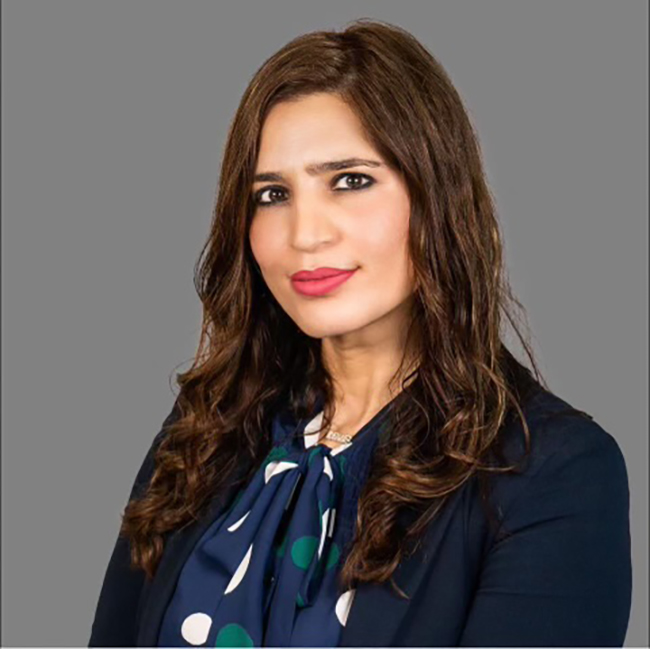
Mirvette Judeh. Photo/courtesy of Mirvette Judeh
Mirvette Judeh, 47, is a leader in the Southern California Arab-American community, an activist and organizer, and is part of the SoCal Ceasefire Coalition and the Arab-American Caucus of the California Democratic Party. She spoke to the Courier by phone on January 18. Please note the death toll figures cited in this story are based on information available at that time.
- COURIER: The U.N.’s International Court of Justice recently held hearings on a casebrought by South Africa accusing Israel of genocide with respect to the current conflict with Hamas and seeking an emergency suspension of its military campaign. What is your take on this assertion?
JUDEH: Well, I feel seen and heard as a Palestinian American and just as a human being because we’ve known that that’s what this is all along as Palestinians.
I don’t know if you’ve ever been bullied, but I was bullied as a kid, and no one ever stood up for me. And so I became that person when I got tough enough when I got older where I just had this personality literally anything that I see in front of me that I don’t think is right, I stand up for the person, even though there’s no impact on me. I always feel it’s my responsibility as a human being to stand up for them.
So, going back to South Africa, I felt like we’ve been bullied, and somebody somewhere stood up for us and is speaking common sense. I don’t know what the results of this trial will be. I believe they will find that it’s genocide because I can’t imagine they won’t. But the fact that they did it, it just gave me hope, and I finally felt seen.
I want you to imagine for our community — and I can speak for family members and everyone that’s been watching this … traumatic …
[Judeh paused here as she was overcome with emotion.]
It’s been a lot … we’ve been in mourning for 105 days now, and I’m going to tell you the truth, I’ve always been Palestinian. I didn’t start being Palestinian on October 7, okay. And there’s always stuff happening in Palestine and the occupied territories, Israel, Gaza, and occupied Palestine. And so I’ve always had this thing. In fact, my disdain for the news has been, [with] always hearing bad news with what’s happening to my people, but this time it’s so gruesome you can’t not see it.
It’s traumatized me, it’s traumatized my kids. They’re impacted different than me. They’re witnessing a genocide at a very young age. My youngest daughter, her take is, ‘Mom, it’s really easy, you know? America hates Palestinians.’ I said, ‘No they don’t,’ and she said ‘Yes, they do. How could you see all that?’ And I understand where she’s coming from.
For me, I’m able to … separate my government’s actions from the people. I have to. I have to because I need to have hope that people understand what’s happening is wrong and this is just governments, imperialist governments, or governments that have been colonizers in the past, because obviously we live on native land, right? [We’re] not currently stealing it, but we did. This is stolen land that we live on. Maybe that’s why America is standing up for this.
I want you to understand it’s very complex as a Palestinian to be an American at this moment, because my tax dollars, our tax dollars, are paying for this. It would still hurt if it was just the U.K. that was involved, but it hurts a lot more that our government is not only complicit, but is an accomplice and a supporter, a financial supporter in what’s happening to my people.
And we’re traumatized, right? I don’t think ever in my life I have seen children or human beings in pieces, or their brains out, and the level of pain and agony that I have witnessed. And I’m somebody who saw of course Iraq was traumatizing, and so was Syria, and what happened in Afghanistan. Those were all wrong. I’m against war all around, right? But there’s something very different about this. I don’t know if you’ve watched the Tik-Tok videos of IDF soldiers kind of mocking them, driving around on kids’ bicycles, or putting women’s underwear and bras out there. It’s a kind of rape. I can’t explain it to you. It’s like I feel like I’m being violated in a very deep way. But because I’m in a country that is so supportive of this.
In fact, as we speak, our freedom of speech is being constantly censored, where if I say, ‘From the river to the sea Palestine will be free,’ that is seen as genocidal. Where, as God is my witness, I have been chanting this chant since I was a child, and it never meant the elimination of Jews; it meant no occupation, no checkpoints, and the ability for me and my family, and all those in my community in Palestine to walk from the beginning to the end of it … And if you’ve ever been to Palestine or Israel, you’ll see that this is not the case. Even as a citizen I don’t have the same rights if I go over there, just because I’m Palestinian. My U.S. citizenship takes a back seat.
So, watching what’s happening, all this death, and just seeing Gaza wiped out, like now 90 percent of its infrastructure is gone, just seeing this … I just feel helpless and on top of that, you’re paying for it. And I love being an American today. And not that I’ve always been proud of what we do as Americans, or I should say as a government, because I don’t believe Americans are bad, I believe governments are corrupt. Power doesn’t see people. It sees gains, political gains, financial gains, right?
I drive in my car, and I see buildings and I imagine them blowing up in front of me. I was on a field trip not too long ago and I just saw those kids, and I see the deaths of the kids in Gaza, and I just imagined these kids in front of me, piled up. And I say, ‘How could anyone be okay with that?’ I know could never be okay with an Israeli child or a Jewish child if that happened. I couldn’t. No matter what my goals are.
I try to shelter my kids as much as I can, and it still seeps through. And keep in mind, the confusing part is the [American] media is still talking about Hamas. I go to places with my kids to advocate for a ceasefire — a ceasefire, the fucking minimum, a ceasefire — and it’s not a unilateral ceasefire; it’s both sides, right?
To me Hamas is not equal to Israel. To me they’re, I guess that people call them terrorists, that’s fine. But there’s still the occupation, okay? But what Israel’s doing, they have the power, the authority, and they’ve had Gaza under siege since 2007. So when you have the power to turn off water, gas, electricity, fuel, limit movement, and have a wall scarier than the wall between Mexico and California around it with guns pointed in every direction, and you have bombing campaigns that [they] call them ‘mowing the lawn,’ it’s disgusting. And then I go to places to advocate and they call my kids Hamas, and they tell me that I’m Hamas, and they call me a Nazi. I’ve never been called a Nazi in my life, by the way. The first time I got called a Nazi was on October 9. It’s disgusting. Not only are you seeing this … I don’t know what to call it. It’s trauma. Our community is traumatized. I don’t think I’ve had a good night’s sleep since October 7. Not one.
Since October 7, Israel’s death toll from this war stands at roughly 1,200. There have been roughly 23,000 Palestinians killed in the conflict over that same period. What are your thoughts on these vastly disproportionate numbers?
Remember, Israel has a military; the other side does not. Israel is a state, is considered a state, that has autonomy. Gaza does not. It’s like me beating on a newborn. There’s no comparison. It shows the indiscriminate bombing. Israel is highly sophisticated. Their intelligence is highly sophisticated …
If they want to target Hamas members they could. To me this, I’ve always believed, is their opportunity to get rid of us, to get rid of Palestinians. And so when you’re talking about the death toll — I think the [Palestinian Ministry of Health] is saying it’s about 25,000. However, there’s 7,000 people under the rubble that have been there for weeks. So, they’re presumed dead, but they just don’t want to call them dead. It’s a sensitivity thing. I get it. Until you officially … I don’t know how much time has to pass. So really honestly the death toll’s over 30,000, which includes over 12,000 children; then you have over 25,000 children that have been orphaned; then you have 1.93 million individuals that are internally displaced out of 2.3 million. That’s insane.
So that to me, if anything, reflects the disproportionality. Even with whatever damage Hamas caused — I’m not excusing it — but it is in no way comparable to what the civilians in Palestine and Gaza have been subjected to.
And remember, there’s still things happening in the West Bank and there’s no Hamas there. We need to reflect on that. That’s really important.
There is no Hamas [in the West Bank]. There is just people being occupied and land continuing to be stolen.
Critics on both sides, including some from within Israel, have questioned the disproportionality of these figures. Many around the world — including some inside Israel — have called for a ceasefire. What are your thoughts on these calls for the cessation of hostilities?
That is the most reasonable thing. That’s what we must do. Unless the U.S. wants to be taken to court, which I know South Africa’s planning a case against the United States that’s well deserved, unfortunately. So yes, that’s the minimum.
And you know what’s so upsetting, and remember we have a large Jewish community that’s against what Israel’s doing, so I don’t want to put this on them, but I don’t know how to name it correctly so I’m going to say Zionists. And being anti-Zionist to me is not being antisemitic. So, I want to make sure that that’s clear. So, you have people here that are Zionists, and let’s say a ceasefire makes them feel unsafe, that a ceasefire is antisemitic. How many more lives have to go? That’s the question. I can put myself in their place. How is this okay for anyone? Even me, if something happened in our country here, I wouldn’t be okay with eliminating another country, and killing the children, and indiscriminately bombing, and eliminating all their hospitals, and stopping them from being able to eat, and collectively punishing an entire … a ceasefire is the minimum. And the whole world should be shouting it out.
And this killing does not make Jewish people feel safer. It’s not going to make them safer. It’s not going to make me as an American safer either!
What are your personal views on how the war has been prosecuted thus far?
I feel like Israel is … this is not self-defense. I feel this is an extermination campaign. That’s what I feel. And everything about the psychotic, sociopathic IDF videos, or IOF videos, that are being put on Tik-Tok prove it.
What does that acronym, “IOF,” stand for?
To me they’re not Israel Defense Forces, they’re [Israeli] occupation forces. Some of us call it ‘IEF,’ which is Israeli extermination forces. There’s a lot of different terms.
How have the views of the people you’ve worked with evolved with respect to the war since October 7?
Okay, so I’m going to be honest with you: I feel like — like I said I’ve been a Palestinian my whole life — but all these folks, a lot of these people that are these allies that I have, they weren’t; they’re not Palestinian, and some of them weren’t even really active on this issue, right? But I can tell you the hate for Israel has increased. The hate and disgust. Which, I’ve never seen that to this level before. Have I ever seen it? Absolutely. But not to this level. So, there’s definitely a lot of animosity and disgust towards Israel. And even in the first two weeks I remember some Jewish friends of mine, some white friends of mine, even some Latino friends of mine, they were arguing with me that it’s self-defense. And then after like a month, they’re like, oh my God Mirvette, you’re right.
Since the war began, I’ve heard Israeli scholars and officials say Netanyahu’s hard-line response to October 7 is creating an entire new generation of antisemites. What do you think about this assertion?
Yes, I do agree antisemitism has increased, as has anti-Muslim, anti-Palestinian, and anti-Arab sentiment. I believe the conflation of anti-Zionism with antisemitism is what is most harmful to the Jewish community. The increased disapproval of the state of Israel’s response to the attack on October 7 which has led to the genocide and ethnic cleansing of Palestinians. The war crimes, and atrocities committed against Palestinians, under the umbrella of self-defense, will not be forgotten and will impact generations of Palestinians and the world. This is criminal. These are war crimes. This is genocide, ethnic cleansing, in front of all of us, being funded by some of the most powerful countries in the world that are not stopping it.
The United States has … prided itself for caring about human life and rights and equality, but really where’s the equality here? Is the United States valuing Palestinian lives as much as it values Jewish or Israeli lives? That’s the question.
I feel like it’s going to increase antisemitism for those who cannot separate the state of Israel from Jews. I know my kids have asked me the question, ‘Oh my God, [do] Jews hate us?’ No, they don’t. No, they don’t.
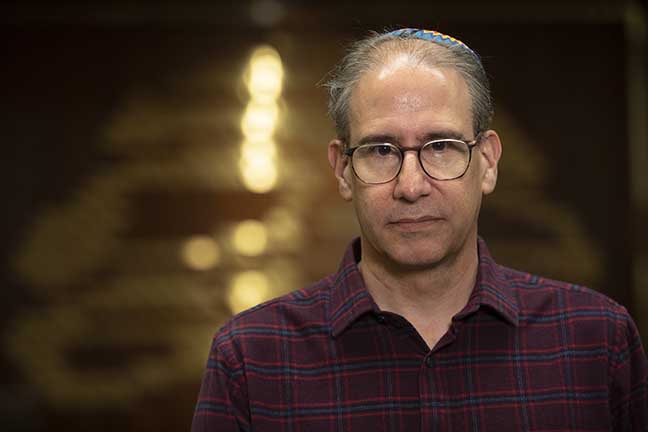
Rabbi Jonathan Kupetz. Courier photo/Steven Felschundneff
Rabbi Jonathan Kupetz, 54, from Pomona’s Temple Beth Israel, spoke to the Courier via email on January 23. Please note the death toll figures cited in this story are based on information available at the outset of our initial email conversation.
- COURIER: The U.N.’s International Court of Justice recently held hearings on a case brought by South Africa accusing Israel of genocide with respect to the current conflict with Hamas, and seeking an emergency suspension of its military campaign. What is your take on this assertion?
KUPETZ: There has been enormous suffering and loss of life of innocent Palestinans in Gaza. Every person should be heartbroken and concerned. Nevertheless, the charge of genocide is a baseless assertion. This was not a war that Israel sought. The current war began with Hamas brutally massacring, beheading, and raping Israel civilians. Israel responded in a war of self-defense against an enemy who openly advocates genocide against Israelis and Jews. A large number of civilians killed does not make something a genocide — over 500,000 people have died in the Syrian civil war during the past 12 years. Genocide requires the intent to destroy a people in whole or in part. Israel’s intent is not to kill Palestinian civilians, but rather, to destroy Hamas and prevent further attacks on Israel. Hamas continues to fire rockets into Israel (over 13,000 since October 7) and to pledge more attacks against Israeli civilians.
- Since October 7, Israel’s death toll from this war stands at roughly 1,200. There have been roughly 23,000 Palestinians killed in the conflict over that same period. What are your thoughts on these vastly disproportionate numbers?
The death of every civilian is a tragedy. The narrative about the imbalance of power or comparative number of deaths is misleading and unhelpful. Hamas killed roughly 1,200 Israelis in a single day, October 7. The only reason that Hamas has not murdered millions of Israelis is that Israel has the military power to stop Hamas. Israel’s death toll stands at about 1,400 (including soldiers), and Hamas cites about 25,000 Palestinians killed in Gaza (including combatants). Israeli estimates about 8,000-10,000 of the Palestinian deaths are Hamas terrorist combatants.
Hamas bears the primary responsibility for the large number of civilian deaths because Hamas has militarized Gazan cities and neighborhoods. Hamas and Islamic jihad terrorists fire rockets into Israel from crowded civilian areas and place military infrastructure in, behind, and under homes, schools, and hospitals. Part of Hamas’s strategy is to maximize civilian deaths (and thereby put pressure on Israel) by putting civilians directly in harm’s way, which is a war crime. On a number of occasions, Hamas rockets have misfired and landed inside Gaza, killing civilians. The Biden administration has urged Israel to transition to lower intensity warfare (which it has already begun to do) in order to better safeguard civilian lives.
Critics on both sides, including some from within Israel, have questioned the disproportionality of these figures. Many — again, including some inside Israel — and around the world have called for a ceasefire. What are your thoughts on these calls?
I am in favor of a negotiated humanitarian ceasefire that would allow the 136 Israeli hostages to be released and aid to better reach Palestinian civilians.
There was a negotiated ceasefire before October 7. Each time there has been a ceasefire, it has been broken by Hamas. Hamas rejected a ceasefire proposal by Egypt on December 25 that included the release of all hostages and a new governing authority of Palestinian technocrats to govern Gaza until an election could be held. There are continued negotiations for a ceasefire. I look forward to hostages coming home and Palestinians in Gaza getting more aid and relief from the military campaign. The war could end immediately if Hamas stopped trying to kill Israeli civilians, recognized Israel’s right to exist, and negotiated peace.
Have your personal views on the war changed since we last spoke in early November? If so, how?
I hoped that the war would have been over by now, but the Hamas infrastructure is even more entrenched than previously thought. The human cost of this war is very high — the images of death from the war are heartbreaking. If the war ends with Hamas still in power, it virtually guarantees another war in the relatively near future. That is morally problematic. Hamas does not believe Israel has a right to exist and has as its mission the elimination of Israel and the killing of Jews. However, the massive loss of life in Gaza is also morally untenable. I personally believe that there should be a greater focus on getting the hostages released.
Have the views expressed to you by your constituents evolved over those two months? If so, how?
Some people have become more hardened in their perspectives. There continues to be a broad array of perspectives in the Jewish community about the Gaza/Israel war and about the larger conflict. There is much more conversation about what happens ‘the day after.’ I believe that Netanyahu is unable to really deal with that question in a meaningful way due to the extreme right wing elements of his government and his wish to remain in power. Productive conversations on this question might have to wait until there is a new government.
In November, I asked you if you thought Netanyahu’s hard line military campaign might be creating a new generation of antisemites. You said, “I think there’s some weight to that.” How have your views on this question changed since then?
Here in America and around the world, antisemitism continues to be pervasive. Since October 7, there have been over a thousand bomb threats against synagogues in the United States, including against the synagogue I serve. World events do not create antisemitism, but they do embolden antisemites to be louder and more active. In the long term, in Israel, Gaza, and the West Bank, Israelis and Palestinians will need to live side by side. Both people must be able to live with dignity and security. The trauma and loss to both Palestinians and Israelis empowers the extremists in both societies, and will make it even more difficult to reach an agreement with one another in the future.
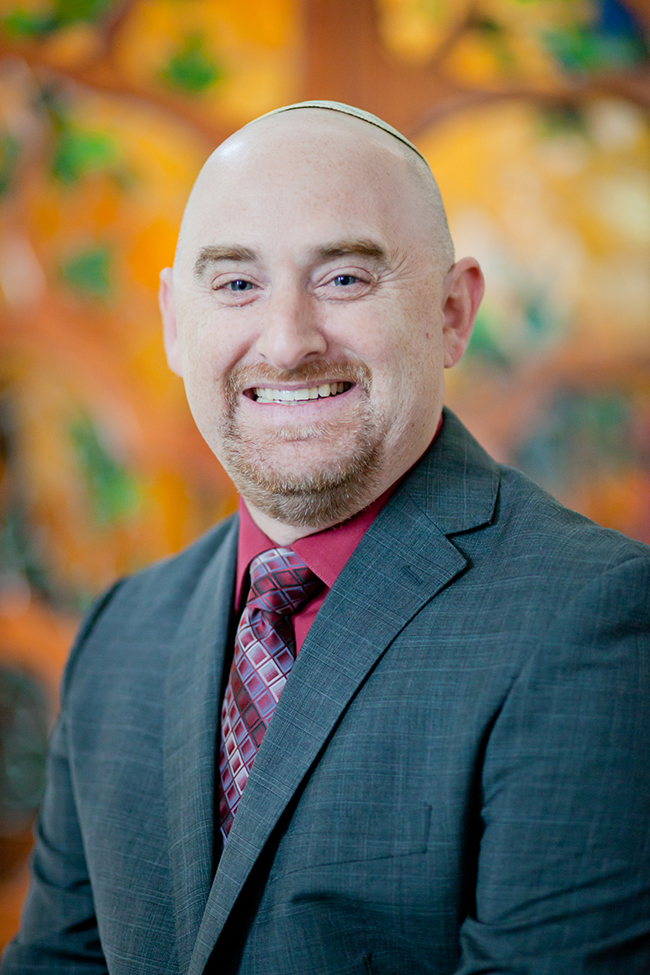
Jason Moss. Photo/courtesy of the Jewish Federation of the Greater San Gabriel and Pomona Valleys
Jason Moss, 49, is the executive director of the Jewish Federation of the Greater San Gabriel and Pomona Valleys. He spoke to the Courier by phone on January 8. Please note the death toll figures cited in this story are based on information available at that time.
- COURIER: The U.N.’s International Court of Justice recently held hearings on a case brought by South Africa accusing Israel of genocide with respect to the current conflict with Hamas, and seeking an emergency suspension of its military campaign. What is your take on this assertion?
MOSS: I think both it’s shortsighted, and also ill advised. The word ‘genocide’ has taken on an entirely new connotation than it was originally set up to be, I think. In this case, while I know that there is a lot of public outcry, and rightfully so, about the number of Palestinians that have been killed during this war, the problem is that it does not incorporate in all of the steps the IDF has taken in order to try and mitigate the number of lives lost.
One of the definitions of genocide is actually a targeted killing of a people. The problem is the IDF is targeting Hamas. And that has been the clear and stated goal from the beginning, along with trying to rescue the hostages.
The challenges have become is that because [the war is taking place] in a populated area of Gaza, as well as Hamas preventing many Gazans from leaving areas after they have been notified both by phone calls and text messages and flyers, and directed to specific areas by the IDF in order to keep them safe. Hamas has basically held them at gunpoint and said don’t move, and used them as human shields. That includes the incorporating of even their military operations at hospitals and so forth.
So, this is where that challenge lies in why I’m concerned about this international court and South Africa bringing this charge of genocide on Israel. No other nation telegraphs exactly where the attacks are going to happen. And Israel has done that ongoing through this entire effort, because they’ve been trying to make sure they can minimize the number of deaths.
And yes, there have been mistakes, as there are in every single war, in innocent lives [lost]. The challenge though is that not all of the people that have died are innocent. And to call the actions of the IDF a genocide, when they are taking steps that no other nation has ever done, is ill sighted in my opinion.
- Since October 7, Israel’s death toll from this war stands at roughly 1,200. There have been roughly 23,000 Palestinians killed in the conflict over that same period. What are your thoughts on these vastly disproportionate numbers?
One thing is your number is off, because it does not take into account the number of soldiers that have died as part of the war. But also it does not take into account the number of that 23,000 that were actually Hamas targeted. And the reason why I share that is because the information that we are getting, and the world is getting, is from Hamas’s ministry of health, and they are not separating out those that are killed. And so, they’re lumping all of them together.
Having said that, I think that it’s important to know that not only is the world right in being frustrated, upset, and saddened by the number of deaths that have taken place during this war, the Jewish community is in the same position. We are not celebrating these deaths. There’s no celebration whatsoever. In fact, the idea that Israel is trying to increase its kill total, which is a horrible connotation, is actually not correct in any shape or form.
We’re seeing a war that’s playing out on TV and in the media in a way that has never been seen before. [It’s] a type of warfare that’s being conducted because of the area that this war’s taking place, the densely populated area.
When Israel has tried to open up humanitarian corridors, and done different tactics, Hamas has prevented people from leaving. Now, the disproportionate number of lives [lost] is saddening. The community itself mourns every single life. And that’s where the struggle, in my opinion, really is lying right now, is this perception that Israel’s trying to kill more and more Palestinians. But the numbers are not accurate, because they incorporate Hamas militants and Hamas terrorists in those totals as well.
Now, if a rough estimate is 8,000 or 9,000 Hamas terrorists [killed thus far], that’s still 14,000 innocent Gazans and Palestinians. And the hope is the killing will stop soon.
The unfortunate part is, Hamas brought this war on by attacking Israel.
Part of the problem we have is what information is really accurate. I’m not disputing that 19,000 is wrong or 23,000 is wrong. That’s not my point. The information’s coming out of Gaza from Hamas run ministry of health. I don’t want to split hairs, but I think it’s important to contextualize this. It doesn’t change the fact of the proportionality of this. The fact is when Israelis were killed, Palestinians celebrated. You do not see any celebration by Israelis of Palestinian death.
Critics on both sides, including some from within Israel, have questioned the disproportionality of these figures. Many — again, including some inside Israel — and around the world have called for a ceasefire. What are your thoughts on these calls?
I think a lot of these ceasefire calls are one-sided, meaning that they very rarely demand the hostage releases, and they’re basically blaming Israel for this war. I think people forget that on October 6 there was a ceasefire in place, and Hamas broke the ceasefire. Hamas broke the ceasefire as well after it had been negotiated, and has refused to return to the negotiating table. They started firing rockets and refused to continue the ceasefire after each instance that was being asked of them [during the November 24-30, 2023 negotiated ceasefire period]. The demands that they were making … they kept pushing it off, pushing it off, pushing it off. And ultimately, they were also firing rockets into Israel during the ceasefire.
The world is calling for a ceasefire, but not recognizing or accepting the fact that Israel would absolutely stop all war efforts if Hamas would return all the hostages. And I think that the calls for a ceasefire just by Israel, with no prerequisite for Hamas to return the hostages, is showing a lot of the misinformation and misinterpretation of what’s really happening and why the war has continued.
Have your personal views on the war changed since we last spoke in early November? If so, how?
I think with each day, as more reports of innocent people being killed, it’s making it harder for me to see how Israel can continue going with this and not be confronted with the international response and the demands that are being asked of it. And that personal … in some cases struggle I’ve had, is something I knew was going to be happening the moment the war started, because I knew the moment the IDF went into Gaza to try and free the hostages and dismantle Hamas, that the more protracted the war got, where the pendulum would swing against Israel, and ultimately American Jews, because of the perception being that we are proxies of Israel. And each day, as the length of the war continues and we are hearing of instances of hostages dying in captivity, or failed attempts to rescue them, it’s becoming harder and harder to see how and when this war will end. And that struggle of the … not guilt, but more concern of the amount of lives lost because of Hamas’s actions, are weighing on me.
In addition to the rising antisemitism and attacks and the targets American Jews have on their backs, me included, as being perceived as being supportive wholeheartedly on Israel’s actions.
Have the views expressed to you by your constituents evolved over those two months? If so, how?
I think that more and more people are wondering what Israel’s end game is. And this is from my constituents, so the local Jewish community. And just the prolonged sense of things. You’re seeing more and more people calling for an end to the hostilities. And I think you’re seeing less support for Israel’s actions as it continues. And the problem with that is that many times they’re forgetting about why this happened, why it started, and that ultimately there are still hostages in captivity that are being used as political pawns by Hamas to not only prolong the actions by the IDF, but at the same time we sometimes are forgetting that there are families still being impacted directly by October 7 because their loved ones are still being held captive for no other reason except for Hamas feeling like they have some leverage as long as they have the hostages and political sway and public sway of opinion. And that has been jarring for many in the community.
In November, I asked you if you thought Netanyahu’s hard line military campaign might be creating a new generation of antisemites. You said, “I think there’s some weight to that.” How have your views on this question changed since then?
I think it hasn’t changed much. I think this is a concern of what’s going to happen and how people are going to view Israel and Jews post war, whether people are going to have a short memory, or it’s basically creating more sympathy for the Palestinians. And I don’t want that to come across the wrong way. But more so a matter of the … perceived power of Israel on the less powerful Palestinians. Inevitably I think people are going to be more supportive of Palestinians — which is not right or wrong — I think it’s just that they are political pawns in many cases in the Arab world, and being used by Hamas in many ways. But to go back to the question, I am still concerned about the decisions that the Israeli government is making, the impact it has here locally, is a major concern that I have. And I think that as the war continues it becomes more and more a realistic reality moving forward.



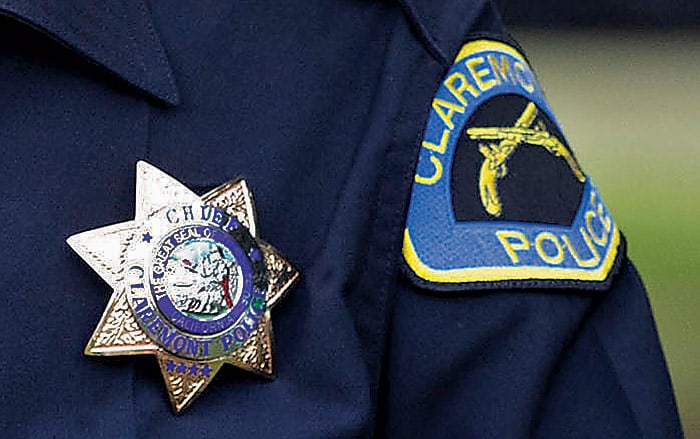

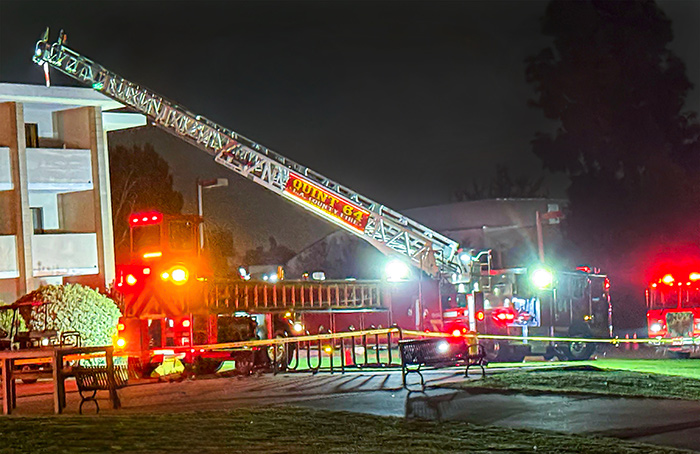
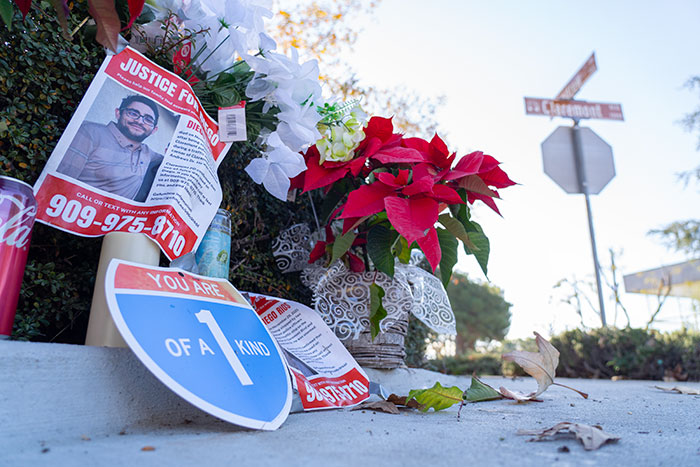
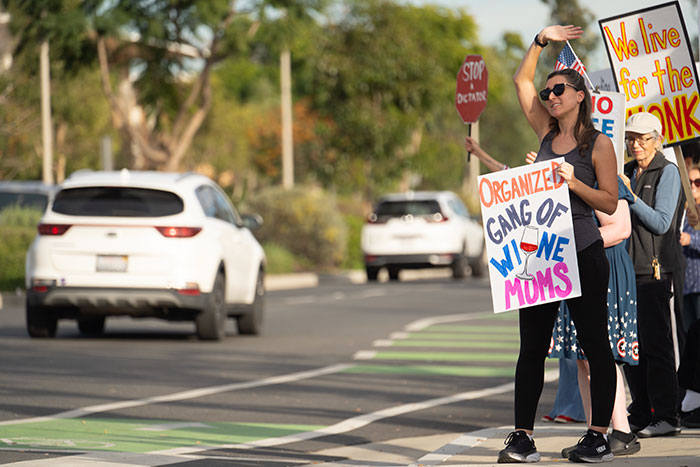
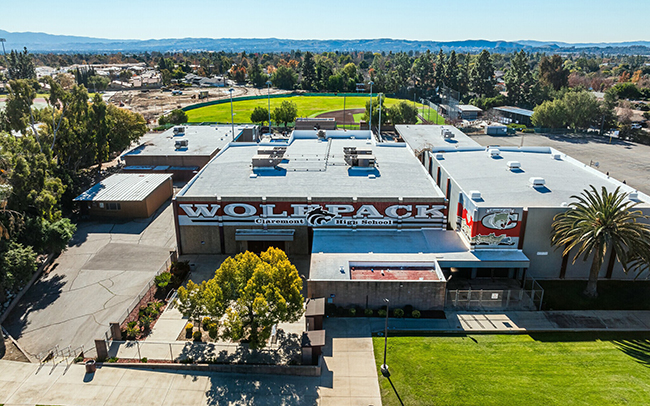

0 Comments